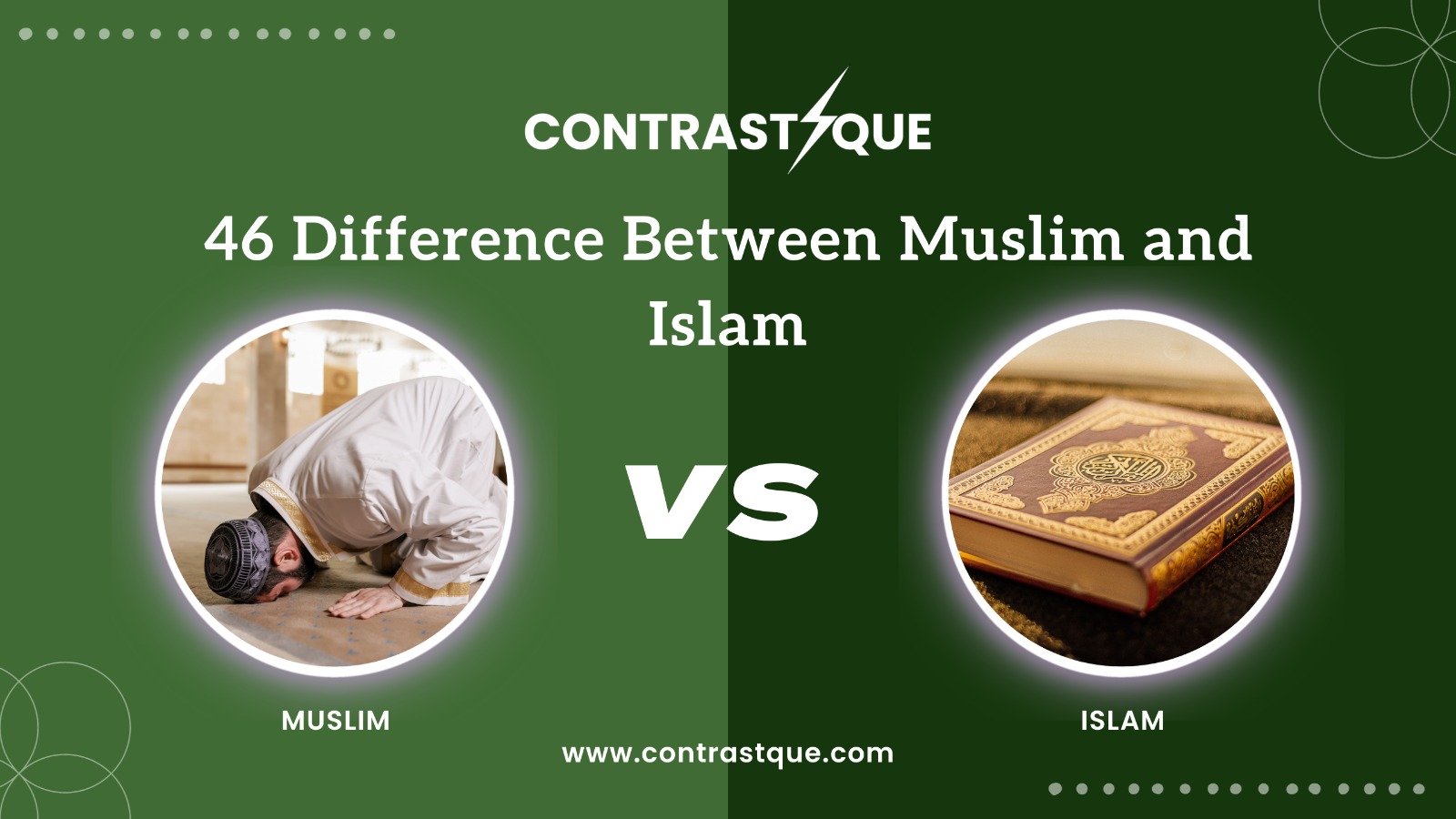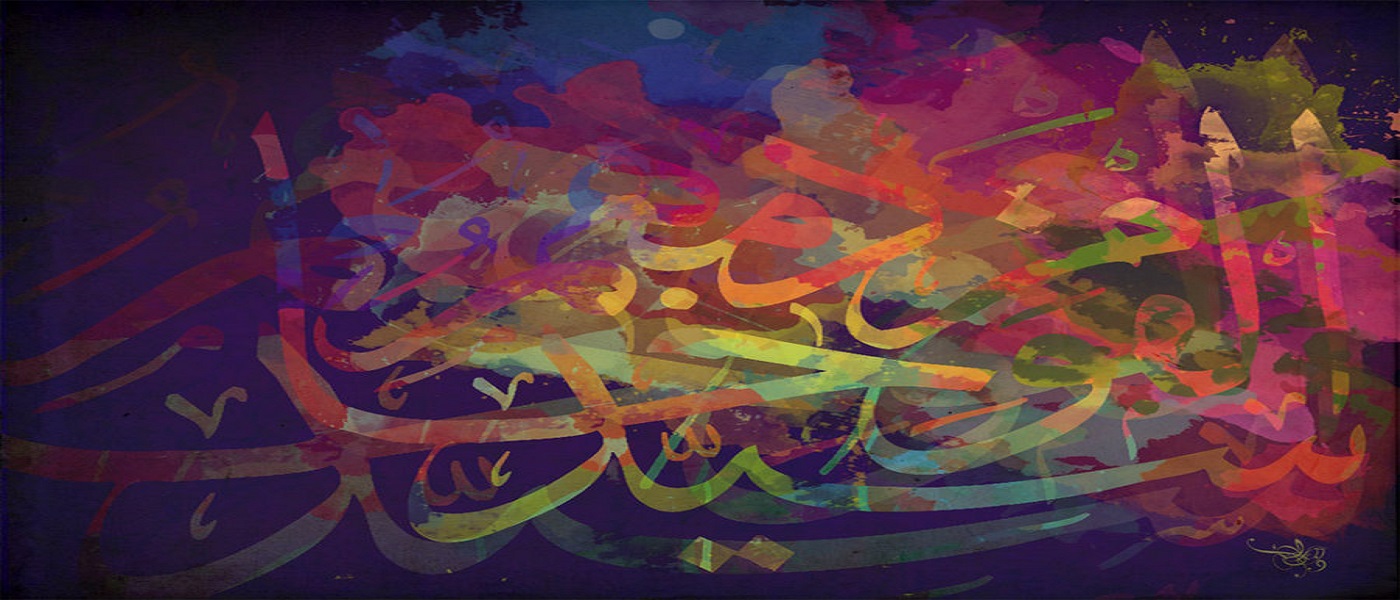Understanding the distinction between Islam and Muslim is essential for fostering mutual respect and dispelling misconceptions. These terms are often used interchangeably, but they hold distinct meanings that are crucial to appreciate. By exploring their definitions, historical context, and cultural significance, we can better grasp the nuances of these terms.
Islam refers to the religion itself, while Muslim describes an individual who follows the Islamic faith. This distinction is vital in understanding the core principles of the faith and its adherents. By delving deeper into these concepts, we can foster greater awareness and appreciation of this rich and diverse religion.
In today's interconnected world, accurate knowledge about different religions is more important than ever. This article will explore the differences between Islam and Muslim, shedding light on their meanings, cultural implications, and the significance of understanding these terms in contemporary society.
Read also:Jayle Page Rising Star In The Entertainment Industry
Table of Contents
- Definition of Islam
- Definition of Muslim
- Historical Context of Islam and Muslims
- Core Beliefs of Islam
- The Five Pillars of Islam
- Cultural Diversity Among Muslims
- Common Misconceptions About Islam and Muslims
- Differences Between Islam and Other Religions
- Role of Muslims in Society
- Conclusion and Call to Action
Definition of Islam
Islam is a monotheistic religion centered around the belief in one God, Allah, and the teachings of the Prophet Muhammad (peace be upon him). The term "Islam" itself means "submission" or "surrender" to the will of God. It is one of the world's major religions, with over 1.9 billion followers globally.
Islam is not only a set of beliefs but also a way of life that guides its adherents in all aspects of life. The religion emphasizes justice, compassion, and peace, with teachings that promote equality and respect for all humanity.
Origins of Islam
Islam originated in the Arabian Peninsula in the 7th century CE. The Prophet Muhammad (peace be upon him) received divine revelations from Allah through the angel Gabriel, which were later compiled into the holy book of Islam, the Quran. These revelations laid the foundation for the religion and its core principles.
Definition of Muslim
A Muslim is an individual who practices the religion of Islam. The term "Muslim" refers to someone who submits to the will of Allah and follows the teachings of the Prophet Muhammad (peace be upon him). Muslims come from diverse backgrounds and cultures, yet they share a common faith that unites them.
Being a Muslim involves adhering to the core beliefs and practices of Islam, including the Five Pillars, which serve as the framework for religious life.
Who Can Be a Muslim?
Anyone can become a Muslim by declaring their belief in the oneness of God and the prophethood of Muhammad (peace be upon him). This declaration, known as the Shahada, is the first step in embracing the Islamic faith.
Read also:Unveiling The Truth The Children Of Diane Wildenstein
Historical Context of Islam and Muslims
The history of Islam and Muslims is rich and diverse, spanning continents and centuries. From its origins in Arabia to its spread across the Middle East, Africa, Asia, and beyond, Islam has played a significant role in shaping world history.
Throughout history, Muslims have contributed to advancements in science, philosophy, art, and culture. Their achievements have left a lasting impact on human civilization.
Key Events in Islamic History
- The birth of the Prophet Muhammad (peace be upon him) in 570 CE.
- The first revelation of the Quran in 610 CE.
- The Hijra (migration) to Medina in 622 CE, marking the start of the Islamic calendar.
- The expansion of the Islamic empire under the Rashidun and Umayyad Caliphates.
Core Beliefs of Islam
The core beliefs of Islam revolve around the six articles of faith, which form the foundation of the religion. These beliefs include the oneness of God, the existence of angels, the divine scriptures, the prophets, the Day of Judgment, and divine destiny.
These principles guide Muslims in their daily lives and provide a framework for understanding the world and their place within it.
Oneness of God (Tawhid)
Tawhid is the central tenet of Islam, emphasizing the absolute oneness of God. It rejects the notion of intermediaries or partners in worship and underscores the direct relationship between humans and their Creator.
The Five Pillars of Islam
The Five Pillars of Islam are the fundamental practices that every Muslim must observe. They include:
- Shahada: The declaration of faith in the oneness of God and the prophethood of Muhammad (peace be upon him).
- Salah: Performing the five daily prayers.
- Zakat: Giving alms to the poor and needy.
- Sawm: Fasting during the month of Ramadan.
- Hajj: Pilgrimage to Mecca, required at least once in a lifetime for those who are physically and financially able.
Cultural Diversity Among Muslims
One of the most remarkable aspects of the Muslim community is its cultural diversity. Muslims are found in nearly every country and come from a wide range of ethnic and cultural backgrounds. This diversity enriches the global Muslim community and highlights the universal appeal of the Islamic faith.
Despite their differences, Muslims share common values and practices that unite them in their faith.
Examples of Cultural Diversity
- Indonesian Muslims celebrate Islamic festivals with traditional music and dance.
- West African Muslims incorporate local customs into their religious practices.
- Muslims in the Middle East have a rich tradition of calligraphy and art inspired by Islamic teachings.
Common Misconceptions About Islam and Muslims
Misunderstandings about Islam and Muslims are prevalent in today's world, often fueled by stereotypes and misinformation. It is essential to address these misconceptions and promote accurate knowledge about the religion and its followers.
Some common misconceptions include the belief that Islam promotes violence, that all Muslims are Arabs, and that women are oppressed in Islamic societies. These stereotypes are not only inaccurate but also harmful in fostering prejudice and discrimination.
Addressing Misconceptions
Education and open dialogue are key to dispelling myths about Islam and Muslims. By learning about the true teachings of the religion and engaging with its adherents, we can build bridges of understanding and promote peace and harmony.
Differences Between Islam and Other Religions
Islam shares some similarities with other Abrahamic religions, such as Judaism and Christianity, but it also has distinct characteristics that set it apart. Understanding these differences is important for appreciating the unique aspects of each faith.
For example, while all three religions believe in one God, Islam emphasizes the absolute oneness of Allah and rejects the concept of the Trinity. Additionally, Islam places great importance on the finality of the prophethood of Muhammad (peace be upon him).
Comparative Analysis
- Islam and Judaism: Both religions share a common lineage through the patriarch Abraham.
- Islam and Christianity: Both faiths recognize Jesus as a prophet, but Islam does not view him as divine.
Role of Muslims in Society
Muslims play vital roles in societies around the world, contributing to various fields such as science, medicine, education, and politics. Their values of justice, compassion, and service to humanity inspire them to make positive impacts in their communities.
Despite facing challenges such as discrimination and prejudice, Muslims continue to strive for peace and coexistence with people of all backgrounds and beliefs.
Examples of Muslim Contributions
- Groundbreaking discoveries in mathematics and astronomy during the Islamic Golden Age.
- Modern-day Muslim leaders advocating for social justice and human rights.
Conclusion and Call to Action
In conclusion, understanding the difference between Islam and Muslim is crucial for fostering mutual respect and dispelling misconceptions. By exploring the definitions, historical context, and cultural significance of these terms, we can gain a deeper appreciation of the Islamic faith and its adherents.
We invite you to share your thoughts and insights in the comments below. Engage with our community by exploring other articles on our website that delve into diverse topics related to religion, culture, and society. Together, let's promote understanding and harmony in our increasingly interconnected world.
For further reading and research, consider consulting reputable sources such as:


